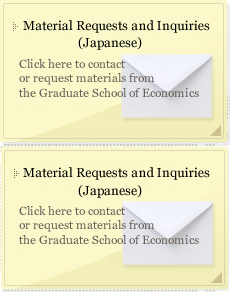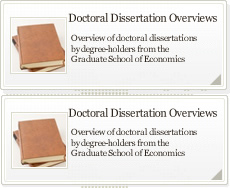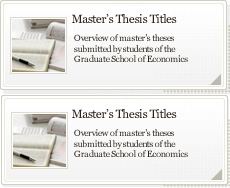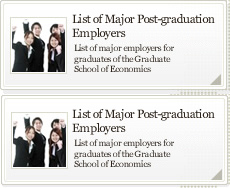Unique Advantages
 Completion of Graduate School While Working
Completion of Graduate School While Working
Normally, a master’s degree course requires 8 seminar credits and 22 lecture credits throughout the two year span of the program and submission of a master’s thesis by a set date during the second year. This generally means five classes per week plus a seminar based on a specialized topic during the first year, and one class as well as seminar attendance and completion of a thesis by December during the second year.
Although completing graduate school while working is not an easy task, careful arrangement of one’s class schedule makes it possible to complete a course of study by attending school for two to three days each week during the first year, and one day per week during the second.
The Graduate School of Economics also offers classes during nighttime hours, on weekends, during long public holiday periods and at other non-standard times so that working adults can complete the necessary amount of credits.
 Obtainment of Specialized Teaching Certification
Obtainment of Specialized Teaching Certification
We offer teaching certification courses for current junior high and high school teachers who strive for administrative positions such as vice-principal or principal in the future. Individuals who hold a certain license and meet other specific conditions can complete a master’s degree from the Graduate School of Economics as well as 24 credits through a relevant course of study to obtain a special teaching certification for social studies in junior high school, or for civics or geography and history in high school.
The geography and history special certification is only available at the Matsuyama University Graduate School of Economics.
 One-year Master’s Degree Course
One-year Master’s Degree Course
Students who have at least one year of experience working in their field upon enrollment in the graduate school can submit research result reports and other such paperwork upon enrollment and, if their submissions successfully pass screening, take a one-year master’s degree completion course.












